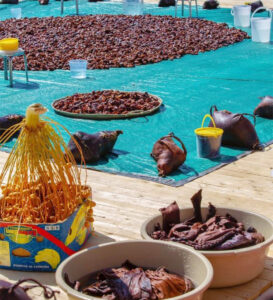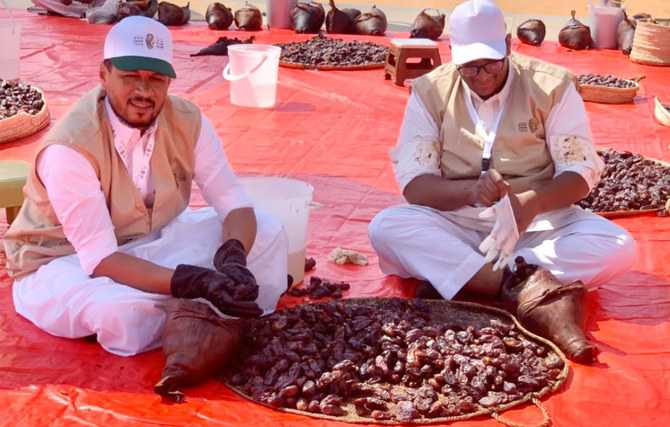JEDDAH: In AlUla and the wider Arabian Peninsula, an ancient method of storing and preserving dates, known as shannah, stands as testament to people’s commitment to the preservation of their cultural and culinary heritage.
Shannah not only showcases the ingenuity of the past but also plays a significant role in the region’s economic and agricultural landscape.
Shannah is crafted from the skin of sheep or goats and is a crucial element in the date storage process in AlUla.
Harvested dates are cleaned, dried, and stuffed into the animal skin, which is then sewn together with palm fronds. The shannah is then left outside to soak up the sun for a period ranging from a few months to five years. The meticulous shannah process ensures the dates’ high quality is maintained throughout.
The demonstration of the shannah process is a highlight of the annual AlUla Dates Festival, providing visitors with firsthand experience of preserving dates in this unique manner.
In alignment with the goals of Saudi Vision 2030, the Royal Commission for AlUla is supporting tourism development in the governorate. This includes the revival of ancient industries such as the shannah, involving the local community in achieving the commission’s goals.


